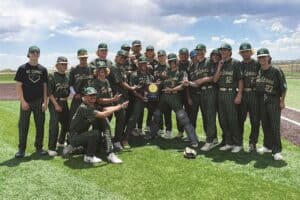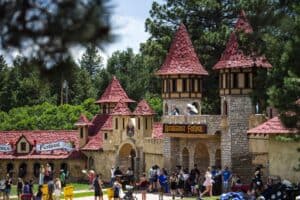With its four and one-half-foot wingspan unfurled to the morning breeze, the adult male Rough-legged Hawk rides a shaft of light down over the edge of a cliff, across a deep chasm and settles on a platform of sticks and grass on the opposing rock face. He’s a gorgeous bird, in his prime, and the white color underlying the numerous black spots spanning his flank feathers is dyed a light gold in the early light.Momentarily perched on the nest, with his wings uplifted in two majestic half-arcs, he now folds his “sails” close to his body and transfers the lemming he just caught 10 minutes ago to his mate, who is sitting on three eggs nestled in the middle of a large mass of twigs that somehow pass for a nest. She prepares to consume the rodent, a small, nondescript brown animal that is so common in the Arctic it is known as “Tundra fast food.”The male, on whom much of the hunting responsibilities will fall today, pauses for about half an hour prior to taking flight again. He is aware that while he was fortunate to catch the lemming that early in the morning, aided by the updraft at the face of the cliff, flying will be far easier once the air has warmed sufficiently for thermals to develop. Scanning the majestic sea view that his perch affords, the sounds of awakening birds below fill the air, mixing with the pounding surf to create a cacophony of sounds that is truly wild. At that moment, a figure appears above the edge of the opposite cliff over which the male had flown on his way to the nest. Both hawks spot it instantly, but show no real concern because the object is a long distance away. The figure raises a pair of binoculars and scans the sheer vertical rock until the binoculars come to rest on the eerie in which the raptors now sit.The person, local birder Matt Peron, is a familiar sight to the hawks. He has been visiting the site as often as possible for about 30 days. On his days off from work, Peron rises about 3 a.m. and jumps in his Jeep for a 30-minute drive to be at the cliff edge at daybreak. He first discovered the hawk pair while searching the cliff faces for seabird colonies. The cliff hosted a wonderful variety of birds, including puffins, Black-legged Kittiwakes and murres.Tucked away from all the commotion on the lower levels was the eerie. As Matt stood on the promontory and with the warm sunrays on his back and the ocean in front of him, he saw a few puffs of water vapor in the distinctive pattern that told him a pod of orcas was passing. The early morning outings had presented him with incredible moments: the discovery of the hawks and the seabird colony, the egg in the nest and now, if his calculations were right, he would see the young birds hatch.Matt sets his tripod and settles down on the spongy tundra, focusing his spotting scope on the hawks. In a few minutes, the male spreads his black-tipped wings and remains poised for a split-second as he marvels at the power that is almost intangibly communicated by the hawk’s posture and carriage. The next instant, the massive breast muscles of the bird send it sweeping off the nest and into the air. Catching the upwards rush of air, the hawk is soon out of sight.(To be continued next month)







